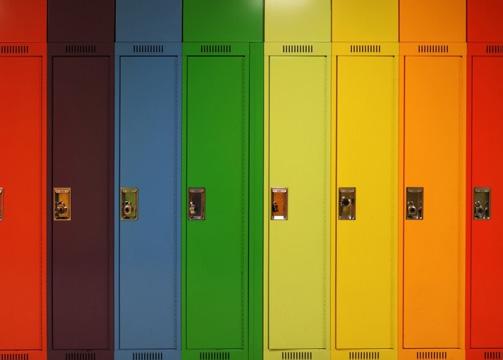
5 minute read
THE IMPORTANCE OF LGBTQ+ EDUCATION IN SCHOOLS
Trans woman and champion of diversity and inclusion Sophie Cook recently wrote on her website about the importance of LGBTQ+ education. Here we publish the original article and she expands on why this is such a pressing subject
“Those of us that grew up before and during the days of Section 28, when knowledge of LGBTQ+ identities was either lacking or expressly forbidden, carry the scars of having our identities invalidated.
Advertisement
“We were demonised, dehumanised and othered. Our mental health suffered due to the isolation and absence of support. Many of us struggled with depression, self-harm or suicidal thoughts, and sometimes actions. We will carry that pain and those scars with us to the grave.
“We must take the opportunity to ensure that future generations do not face this prejudice. Young people must be educated about LGBTQ+ identities and they must feel that they have the freedom and support to explore what that means to them.
“Some may say that we are putting ideas into young people’s heads, that we are confusing them and converting them to an LGBTQ+ lifestyle. To those people I ask how many children have ever become regular churchgoers through Religious Education and mandatory prayers and hymns at school? Those of us that are parents know how difficult it is to persuade a teenager to tidy their bedroom, let alone change their gender identity or sexuality.”

To the question of why is it so important at this point to call for more LGBTQ+ education, Sophie responds: “At the moment we are seeing so much push-back on trans rights in particular, but it’s going to have a push-back on all LGBTQ+ life. You look at some of the stuff the LGB Alliance are trying to put into schools. Some identities are being invalidated. When you are at school and coming to terms with your identity, that’s when you want support, not to be invalidated.
“So many things have been progressing so well in recent years. I do a lot of work in schools, LGBTQ+ societies, clubs, activities. I remember going to one local comprehensive school to talk at an assembly in front of 300 12-year-olds. They said we do a monthly LGBTU lunch. I asked what the U stood for and they said ‘undecided’ and I thought that was great – no one wants to be forced into a box.”
Sophie attended one of the meetings and found the school had laid on a buffet “and the room was full of queer kids”.
She continues: “A couple of the students had their arms around each other and said to me: ‘Miss, we are trying to decide which of us is the gayest.’ I said there was not a part of that sentence that would not have had your head kicked in when I was at school.
“In my generation it was very difficult, if not impossible, to be out and proud at school. It was a very oppressive environment to grow up in. I think it’s great these generations are doing it but we are seeing a push-back now.” She points to the Gender Recognition Act consultation as well as attacks against trans and gender variant youth support group Mermaids and the Gender Identity Clinic in Tavistock. “My concern is if they take away rights from one group it’s very easy to pick us off one by one.”
But it’s not all doom and gloom. “I see these activities at schools all over the country and it fills me with hope. The younger generations just get it in perhaps a way mine doesn’t. Perhaps it’s because they have not read the Daily Mail yet.
“We need more of the same. We need to instil belief systems in our young people. So much of our education system is based on the industrial revolution to make compliant cogs. We now need free thinkers who can get out and change the world.
“I would love to see schools teach philosophy because once we know our place in the world we can connect with other people rather than [having] separations and increasing prejudice.
“So many teachers are doing amazing work with very few resources because a lot of this stuff is deemed ‘nice to have’ rather than stuff they have to do to meet government requirements.” She suggests it would be a good idea in schools to instil a value system that everyone should respect everyone else and that “it’s our differences that make this world a wonderful and exciting place to live in”, but doesn’t see government making such work a priority.
“The politics of division led to Brexit and Donald Trump and suits so many people. All the parties are part of the same system. It needs the system to change and I can’t see that happening in the short term-future, possibly not in my lifetime. We see it more and more. Prejudice is there from lack of education and awareness or from hatred.”
And education is important for people who may have long outgrown school too, with Sophie saying the majority of vitriol around difference “comes from the group of people I would class as ‘should know better’. We need to educate people who have jumped on the gender-critical bandwagon”.
Indeed, younger generations are in many ways taking matters into their own hands. “I grew up in a generation when ‘queer’ was one of the worst insults, but I love the way it’s now a term of sexuality and gender identity and the younger generations have embraced it and are running with it. Because it’s a mish-mash of sexuality and gender identity you might not have your identity as gay or trans – it’s more about saying I am going to be me rather than fit into a box. It’s a new freedom I am amazed to see and wish it had been around when I was growing up.”










